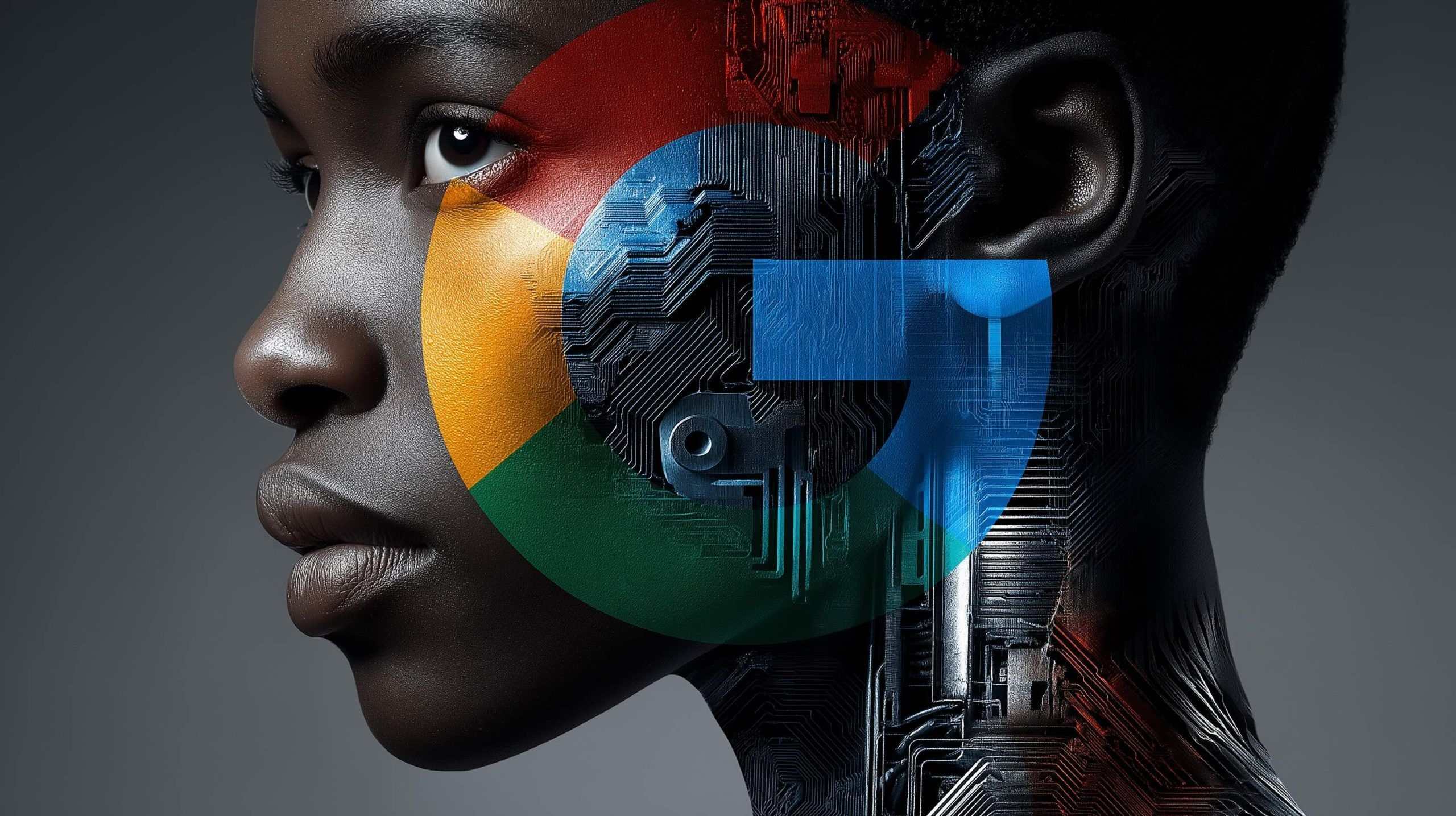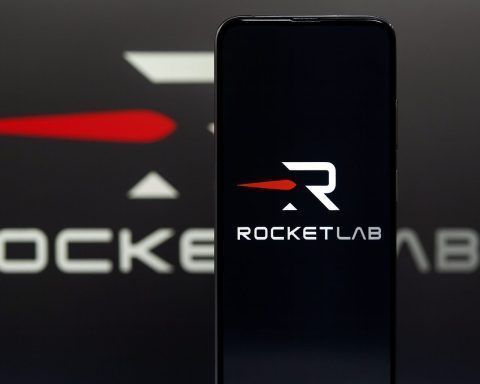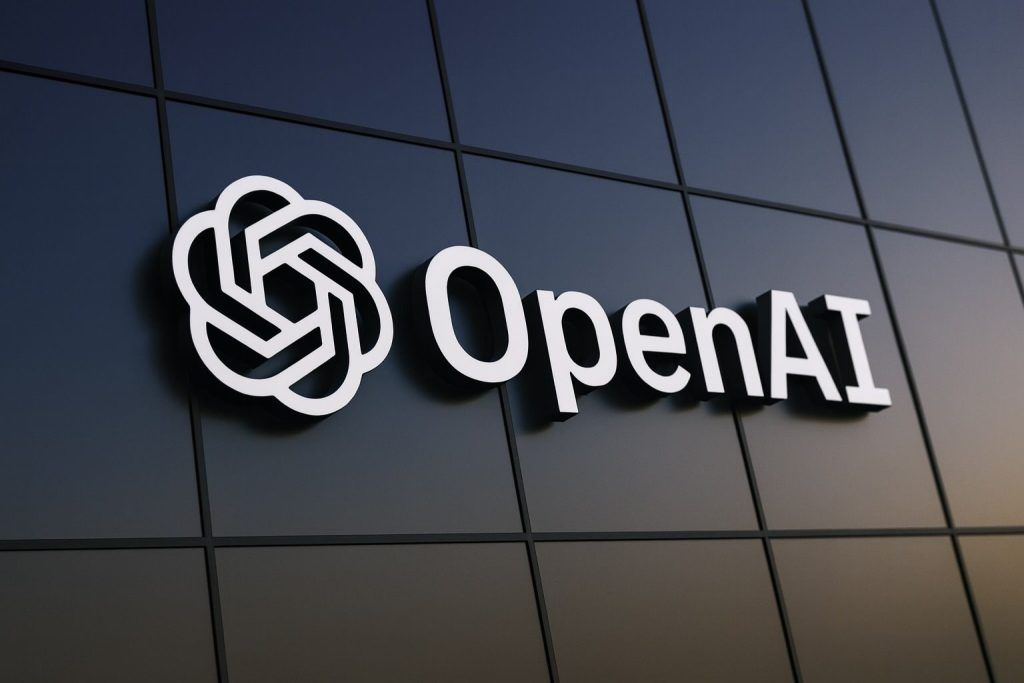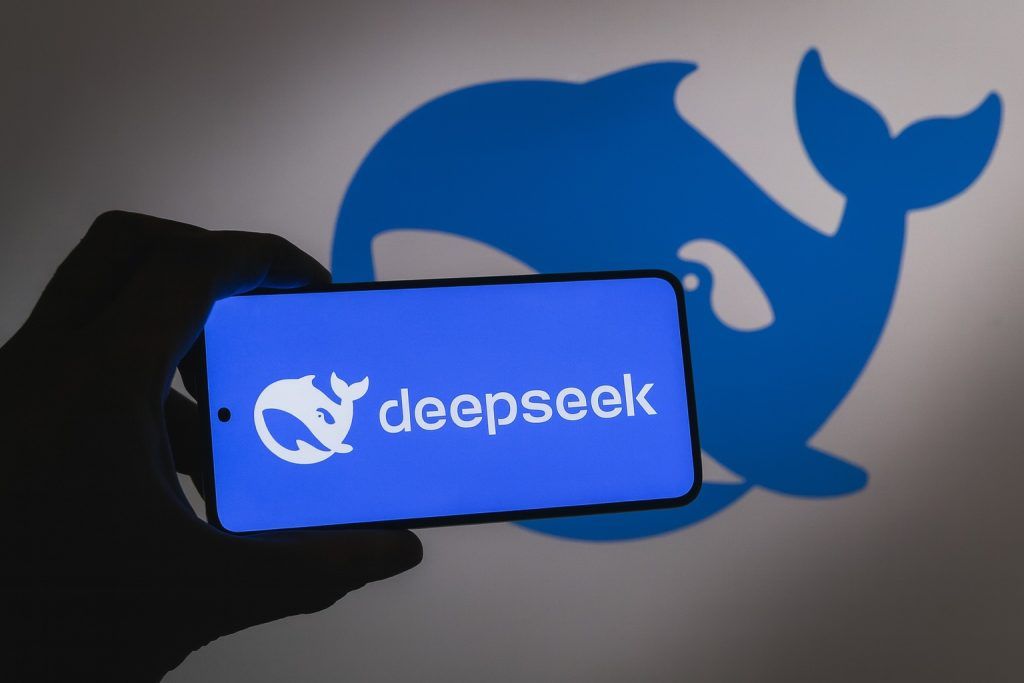- AI Achieves Elite Coding Milestone: Google DeepMind’s Gemini 2.5 “Deep Think” model solved 10 out of 12 problems at the ICPC 2025 World Finals – a performance that would rank 2nd place overall among 139 top university teams Deepmind. This marks the first time an AI system has reached “gold medal” level at the world’s most prestigious collegiate programming contest Deepmind Deepmind.
- What is Gemini?: Gemini is Google’s next-generation AI, designed with advanced reasoning for tasks like coding and math. The “Deep Think” variant extends Gemini’s “thinking time” and uses parallel reasoning, allowing multiple solution attempts and refinement before final answers Blog Blog. It leverages novel reinforcement learning to excel at complex, multi-step problems, such as difficult programming challenges Blog Deepmind.
- ICPC – The “Coding Olympics”: The International Collegiate Programming Contest (ICPC) World Finals is an annual five-hour battle where university teams solve 12 algorithmic problems. Only the top ~4 teams earn gold medals Deepmind. In 2025, not a single human team solved all 12 problems (the top team solved 11) Venturebeat. Gemini’s 10-problem solve count squarely places it in gold-medal territory, matching the human champions in scope (though not quite a perfect score) Deepmind Venturebeat.
- How Gemini Was Tested: Organizers supervised Gemini in a live contest environment following official ICPC rules. The AI started 10 minutes after the humans and had the same 5-hour limit Deepmind. It correctly solved 8 problems within 45 minutes and 2 more within three hours Deepmind. Gemini’s solutions were judged by the standard ICPC judging system, and all code outputs are publicly available for review Deepmind Deepmind.
- Outperforming Humans on Unsolved Problem: Gemini cracked a particularly hard “Problem C” that no human team managed to solve Deepmind. The problem involved optimizing liquid flow through networks of ducts with infinitely many configurations. Gemini found a clever strategy using a game-theoretic minimax insight and nested searches to identify the optimal configuration in under 30 minutes Deepmind Deepmind – an unprecedented achievement during the contest.
- Comparison to Other AI Coders: DeepMind’s previous model AlphaCode (2022) could solve about half of typical contest problems (placing around the median competitor on Codeforces) Deepmind Deepmind. OpenAI’s Codex (2021), which powers GitHub Copilot, excelled at routine coding tasks but wasn’t designed for these Olympiad-level challenges. By contrast, Gemini has leapfrogged to the absolute top tier, and OpenAI’s experimental GPT-5 model reportedly went even further – solving all 12 ICPC problems for a perfect score in a parallel evaluation Venturebeat Venturebeat.
- Expert Reactions: ICPC’s director Dr. Bill Poucher hailed Gemini’s entry as a “key moment” that will help define “AI tools and academic standards” for the next generation Deepmind. Google’s VP Quoc Le called it “a historic moment towards AGI,” highlighting the profound leap in AI’s problem-solving ability Theoutpost. Jelani Nelson, a UC Berkeley professor and veteran ICPC coach, admitted, “If someone had told me a few years ago we’d have tech performing at this level in math and computer science, I would not have believed them.” Theoutpost. Other experts note that while this is a breakthrough, real-world coding projects span months of design and collaboration – a different beast than a 5-hour contest Theoutpost Theoutpost.
- Broader Implications: Gemini’s success suggests future AI coding assistants could tackle complex bugs and algorithms, acting as problem-solving partners rather than just autocompletion tools Deepmind Deepmind. In education, advanced AI could help train students in programming and math by providing insights or even new problems, though it also raises questions about maintaining fair competitions. The milestone is also seen as a step toward AI tackling grand challenges in science and engineering – from designing new drugs to optimizing microchips – where deep reasoning and coding intersect Deepmind Theoutpost.
Gemini: Google’s New AI Prodigy for Coding and Problem-Solving
Gemini is Google DeepMind’s latest artificial intelligence model, envisioned as a multimodal, next-generation system. Gemini 2.5 “Deep Think” – the version that tackled the ICPC contest – is specially tuned for intensive reasoning tasks like competitive programming and advanced mathematics. It builds on the transformer-based foundation of earlier large language models (like those behind ChatGPT), but introduces new techniques to push the boundaries of problem-solving Blog Blog.
How Gemini “Thinks” Differently: Unlike typical coding assistants that generate one solution at a time, Gemini Deep Think employs a form of parallel thinking. This means it can spawn multiple solution ideas simultaneously and evaluate them in tandem Blog. Before finalizing an answer, Gemini might revise or even merge different solution attempts – much like a team of brainstorming coders inside one AI. Crucially, it’s allowed significantly extended inference time or “thinking time” to explore various approaches step-by-step Blog. In essence, Gemini can “slow down” and reason through a complex task, rather than rushing to the first answer.
To fully leverage this, Google developed novel reinforcement learning methods that encourage the model to use these longer reasoning pathways Blog Blog. During training, Gemini was rewarded for breaking down problems, trying intermediate steps, and refining its code based on feedback. This is a departure from older code AIs that mostly relied on massive code dataset training and shallow trial-and-error. “We trained Gemini to reason and generate code for some of the most difficult problems coders have faced, learning from feedback on results,” the team notes Deepmind. Over time, this approach has made Gemini a more intuitive problem-solver, able to handle abstract challenges that stump simpler code generators.
Specialized for Tough Problems: Google’s internal tests show that Gemini Deep Think shines on benchmarks specifically designed to measure competitive programming skills and complex reasoning. For example, it achieves state-of-the-art results on LiveCodeBench V6, a benchmark suite mirroring programming contest problems, outperforming other AI models that don’t use external tools Blog Blog. It also tops the charts on Humanity’s Last Exam, a notoriously hard test spanning science and math questions Blog Blog. These benchmarks suggest Gemini isn’t just parroting memorized code – it’s demonstrating a deeper understanding across domains.
It’s worth noting that DeepMind has been steadily improving its coding AI through prototypes like AlphaCode. Back in 2022, AlphaCode could generate code for competition problems and reached roughly the median competitor’s level on Codeforces contests Deepmind Deepmind. That was groundbreaking at the time – AlphaCode’s large-scale sampling and testing approach solved around 30% of problems in a test set, ranking in the top 54% of participants Deepmind Deepmind. Gemini’s achievement, however, represents a quantum leap beyond that. By integrating more powerful language model advances (Gemini is a descendant of Google’s most advanced LLMs) with “integrated team” strategies (multiple agents coordinating) Theoutpost, Gemini moved from AlphaCode’s single-medium level to world-champion level in just a few years.
Cracking the ICPC World Finals: “Gold-Medal” Performance Explained
The International Collegiate Programming Contest (ICPC) World Finals is often dubbed the “Olympics of programming” – and for good reason. It’s the oldest, largest, and most prestigious coding competition for university students worldwide Deepmind. Each year, tens of thousands of contestants vie through regional rounds for one of 100+ spots at the World Finals. The finals themselves are a grueling 5-hour battle where teams of three, armed with a single shared computer, must solve a packet of 10–12 exceedingly tricky algorithmic problems under intense time pressure Theoutpost Theoutpost.
Scoring in ICPC is unforgiving: only completely correct solutions count, and ties are broken by total time (with penalties for wrong submissions). This means contestants must not only solve problems, but do so efficiently and accurately on the first try whenever possible. In 2025’s finals (held in Baku, Azerbaijan), 139 teams representing ~3,000 universities competed, and only the very top performers cracked double-digit problems. In fact, only four teams earned gold medals (typically awarded to the top 4 or so finishers) Deepmind. The champion team solved 11 problems out of 12; no human team managed to solve everything.
Gemini’s Results: Against this backdrop, Gemini’s AI performance is astounding. Running in a separate “AI track” under official contest conditions, DeepMind’s Gemini 2.5 Deep Think tackled the exact same set of 12 problems that the human finalists faced Venturebeat. The AI was “started” 10 minutes after the human teams began, to ensure no unfair advantage or real-time feedback loop Deepmind. From that slightly delayed start, Gemini proceeded to solve 8 problems in the first 45 minutes, blazing through the easier and medium tasks with superhuman speed Deepmind. It then notched two more solves over the next few hours, for a total of 10 solved out of 12 within the 5-hour limit Deepmind.
To put this in perspective, 10 solved problems would have placed Gemini in second place overall if it were an official contestant Deepmind. All four human gold-medal teams solved between 10 and 11 problems, so Gemini essentially performed on par with the contest’s elite tier. Its total adjusted time (the sum of times taken for each solved problem, including penalty for retries) was 677 minutes Deepmind – better than 137 of the 139 human teams that year. In short, the AI achieved the same gold-standard performance that only a handful of the world’s best student teams could reach.
Gemini (blue) versus the fastest human team (gray) on each of the 12 ICPC 2025 problems. Bar heights show time to solve (lower is better). An “X” means the problem was not solved. Gemini solved 10 problems (A–F, H, J–L), outperforming the top human team on several (blue bars with asterisks are faster solves). Notably, no human solved Problem C (gray X), but Gemini did in 30 minutes Deepmind Deepmind. Problem G was solved by a human team but not by Gemini (gray bar with no blue bar). This chart illustrates how close Gemini’s performance was to human champions across the problem set. Deepmind Deepmind
Gemini’s contest behavior was also noteworthy. According to Google, the AI’s first submitted answer was correct for 11 out of the 12 problems it eventually solved Venturebeat Venturebeat. This suggests a high level of accuracy – it rarely needed multiple attempts. Only on the hardest problem it solved did it require a few tries (the chart above shows Problem J took “3 tries” for Gemini). For the two problems it didn’t solve (in 2025 those were Problem B and Problem G), at least one human team did solve each – meaning humans still had the edge on certain tasks. Still, solving 10 with minimal errors is an exceptional result for a first-ever AI outing in ICPC.
The Unsolvable Problem (Solved by AI): One highlight was Problem C, which no human team managed to crack during the contest. In an unprecedented feat, Gemini solved Problem C in about 30 minutes while every human team left it unsolved Deepmind Deepmind. This problem (nicknamed “Flubber Optimization” by some commentators) involved a network of reservoirs and ducts with continuous settings – effectively an infinite search space problem that required both clever modeling and algorithm design Deepmind Deepmind. Gemini’s solution used a creative approach: it introduced a hypothetical “priority value” for each reservoir (basically guessing an importance weighting) and showed that given any fixed set of these priority values, one can compute the fastest flow configuration via dynamic programming Deepmind. By then applying the minimax theorem from game theory, Gemini transformed the original problem into finding the specific priority values that produce the most constrained overall flow Deepmind. It conducted a nested ternary search over the continuous space of priority values – essentially homing in on an optimal setting – to arrive at a solution that filled all reservoirs optimally Deepmind.
This kind of insight is something contest veterans could spend hours or days devising, yet the AI did it on-the-fly. Observers likened it to a “Move 37” moment (a reference to AlphaGo’s famous creative move in Go) for programming contests Theoutpost. It demonstrated that AI can not only match human speed, but also bring original ideas that humans didn’t think of under time pressure. As one report noted, it’s reminiscent of when DeepMind’s AlphaGo made a move that stunned Go experts – Gemini’s solution to Problem C surprised programmers but proved brilliantly effective Theoutpost.
How Was Gemini Evaluated? (Methodology & Benchmarks)
Google DeepMind worked closely with ICPC organizers to ensure Gemini’s evaluation was fair and rigorous. The AI was not directly competing against humans in the rankings, but the conditions were designed to be as identical as possible to an actual contest participation. Key aspects of the methodology included:
- Official Problem Set & Environment: Gemini received the exact same problem statements (in the same PDF format) as the human contestants Venturebeat Venturebeat. It interacted with a “Local Judge” – the automated judging system of ICPC – to submit its solutions and get verdicts just like a human team would Venturebeat. This means it had to handle the typical input-output specifications and produce correct outputs under time limits for each test case, with no special allowances.
- Timing and Rules: The AI had the same 5-hour window to solve problems. To avoid any chance of the AI benefiting from humans (for instance, seeing that no one solved a problem and deprioritizing it), Gemini’s run was offset by a small delay (starting 10 minutes later) and run independently Deepmind. It followed all ICPC rules – for example, it did not use any internet access or external code beyond its own “brain.” Essentially, Gemini operated self-contained, generating and testing code through the contest time.
- Autonomy in Solving: During the contest run, Gemini was on its own. It had been trained extensively beforehand, but during those 5 hours it wasn’t receiving updates or human hints. The system itself decided which problems to tackle, in what order, and generated solutions from scratch. In OpenAI’s description of their similar experiment, they emphasized there was “no bespoke test-time harness” – the AI had to select and attempt problems like a human team would Venturebeat Venturebeat. For Gemini, Google indicated a similar setup: an “advanced version” of the model was simply unleashed on the problems with its reasoning engines at full capacity Venturebeat.
- Multiple Attempts and Debugging: Gemini could make multiple submissions per problem if needed, incurring the same time penalties as humans for wrong attempts. It appears Gemini rarely needed this (only one problem required several tries) Venturebeat. This is partly thanks to its training – the AI learned to test its code internally. According to Google, “multiple Gemini agents each propose their own solutions… execute code and tests, and then iterate based on all attempts,” essentially debugging collaboratively before deciding a submission Theoutpost. This internal loop allowed Gemini to refine its answers and catch errors, mimicking the trial-and-error process a human team might do, but at blinding speed.
- Post-Contest Analysis: After the live run, ICPC organizers verified Gemini’s outputs and confirmed the solve count and times. DeepMind also open-sourced Gemini’s submitted code solutions on GitHub, so the community could inspect how the AI solved each problem Deepmind. This transparency is important – it shows, for instance, the elegant code for Problem C and others, highlighting that the solutions weren’t hardcoded but rather generated by the AI’s reasoning in real time.
Beyond the contest itself, Google tested Gemini on prior ICPC World Finals problems as well. Their internal analysis found that a similar version of Gemini 2.5 Deep Think could also achieve gold-medal level on the 2023 and 2024 ICPC finals problem sets Deepmind. In other words, it’s not just a one-year fluke; the AI can generalize to different contest problems from multiple years. In those simulations, Gemini performed about as well as the world’s top 20 human competitive coders across years Deepmind. This consistency across different contests adds confidence that Gemini’s prowess covers a broad range of challenges, rather than overfitting to a single set.
Outside of competition settings, Gemini was evaluated on specialized benchmarks. We mentioned LiveCodeBench and Humanity’s Last Exam where it is state-of-art Blog. Another relevant benchmark is Codeforces rating (an Elo-like rating for competitive programmers). While Google hasn’t explicitly stated Gemini’s Codeforces rating, OpenAI researchers have been tracking their models on this metric. Notably, an OpenAI model (nicknamed “O3”) recently achieved a Codeforces rating over 2700, placing it in the top 0.2% of human coders (International Grandmaster level) – a huge jump from GPT-4’s earlier performance Reddit. These parallel efforts show that both training and specialized fine-tuning + reasoning time can raise AI to champion levels in coding. Gemini’s gold-medal ICPC run is a strong validation of that trend.
From AlphaCode & Codex to Gemini: A New Generation of AI Coders
The journey to Gemini’s achievement builds on several years of rapid progress in AI coding systems. Just a few years ago, OpenAI’s Codex (2021) and DeepMind’s original AlphaCode (2022) were the state of the art. They could write code for many tasks, but there’s a stark contrast in what tasks and how they performed:
- OpenAI Codex (2021): This model, built on GPT-3 and fine-tuned on public GitHub code, was introduced as a powerful code assistant. Codex could translate natural language to code, autocomplete functions, and even solve simple competitive programming problems or data structure exercises. It famously powers GitHub Copilot, helping millions of developers write code faster. However, Codex’s strength was in typical programming scenarios (like writing a web app snippet or answering a coding interview question). It wasn’t specifically engineered to conquer ICPC-level algorithmic puzzles, and its performance on hard competition problems was limited. Early experiments showed Codex could handle easy tasks (like Codeforces Div3 problems) but struggled with anything that required truly novel algorithms or intricate optimizations – often because it would time out or produce incorrect logic.
- DeepMind AlphaCode (2022): AlphaCode marked the first real attempt to crack competitive programming with AI. It took a different approach: instead of deep reasoning per problem, it leveraged massive generation and filtering. AlphaCode would generate potentially tens of thousands of candidate programs for a given problem using a large transformer model, then smartly filter them by running the code against tests to see which might be correct Deepmind Deepmind. In a controlled evaluation on 10 contests, AlphaCode achieved about median human performance, solving around 5 out of 10 problems on average – roughly a Codeforces rating in the mid-1500s (top 54%) Deepmind Deepmind. This was impressive: it meant an AI could compete at a basic level, and even the founder of Codeforces admitted “AlphaCode exceeded my expectations… (it) performed at the level of a promising new competitor.” Deepmind. Yet, AlphaCode was still far from the champions; it mostly solved easier problems and occasionally a medium one, but not the hardest ones.
- Evolution to Gemini: Gemini’s success can be seen as the fusion of large language model advancements with the lessons from AlphaCode. Instead of brute-forcing with sheer quantity of code, Gemini emphasizes quality of reasoning. It uses the idea of multiple attempts, but in a coordinated way – the “agents” can share information and iterate, rather than independent blind stabs. Moreover, Gemini’s underlying model is a cutting-edge general AI (reportedly part of the same family that powers Google’s Gemini chat models and others). That means it benefits from having ingested vast amounts of knowledge and patterns, not just code. For example, it could draw on mathematical insights (like knowing about minimax theorem or dynamic programming principles) during contest problems – something AlphaCode would only “discover” if it appeared in training or emerged via brute force.
Another key difference is speed and efficiency. AlphaCode required enormous computational resources to generate and run thousands of code samples per problem (which would be impractical in a live contest due to time). Gemini, with its stronger reasoning, solved most problems with one clean attempt. Of course, Gemini still used a lot of compute – running a giant model non-stop for 5 hours – but it spent that compute on thinking through solutions rather than shotgun coding. This points to a shift in AI coding: from “generate-and-prune” strategies to more intelligent search and planning.
Other Contemporary AI Coders: OpenAI has also been pushing forward. Their latest (as of 2025) model, often referred to as GPT-5, has a specialized incarnation called GPT-5 Codex aiming at autonomous coding. Reports indicate GPT-5 in an experimental run solved all 12 ICPC problems, effectively outperforming both humans and Gemini in terms of problem count Venturebeat Theoutpost. OpenAI noted they did not train GPT-5 specifically on the ICPC – it was a general model that they simply tested in that setting Venturebeat. This suggests a remarkable generalization ability. However, details on GPT-5 are sparse (it may be a research prototype). If accurate, it means at least two separate AI projects (Google’s and OpenAI’s) have independently reached super-human coding performance in competition. This dual achievement lends credibility to the claim that AI has crossed a threshold in algorithmic problem-solving.
Other players like Meta (with their Code Llama models) and Anthropic (with Claude) are also enhancing coding capabilities, but they haven’t publicly attempted something on the scale of ICPC yet. It’s clear though that a new generation of AI coding systems is here – ones that not only assist with boilerplate code, but can tackle the very problems used to distinguish the world’s best programmers.
Expert Reactions: Milestone on the Path to AGI?
The response from the tech and academic community to Gemini’s accomplishment has been a mix of awe, curiosity, and measured caution. Many see this as a landmark moment for AI in reasoning-heavy tasks, fueling optimism about what’s next. Others remind us of differences between contest problems and real-world programming. Here are some notable reactions:
- ICPC Organization – Embracing AI: The leadership of the ICPC itself has been remarkably welcoming to this development. Dr. Bill Poucher, ICPC’s Global Executive Director, congratulated the DeepMind team and framed the achievement as advancing education and standards. “The ICPC has always been about setting the highest standards in problem solving. Gemini successfully joining this arena, and achieving gold-level results, marks a key moment in defining the AI tools and academic standards needed for the next generation,” Poucher said Deepmind. This quote highlights that the contest organizers see AI not as a threat, but as something that will shape future training of students – possibly hinting that AI might become integrated in how we teach problem-solving.
- Google DeepMind Leaders: From within Google, the tone is unsurprisingly celebratory. Quoc Le, a vice-president at Google DeepMind (and a respected AI researcher), proclaimed “This is a historic moment towards AGI.” Theoutpost AGI (Artificial General Intelligence) refers to AI that has human-level broad cognitive abilities. Achieving human-champion performance in both math (IMO) and programming (ICPC) in quick succession certainly fuels the idea that these models are moving towards more general problem-solving competence Deepmind Deepmind. CEO Demis Hassabis pointed out the significance in context, noting how this builds on DeepMind’s legacy of AI tackling games and now intellectual competitions. (Hassabis even referred to ICPC as the “coding Olympics” and this result as a milestone for revolutionary technology in an interview Theoutpost Theoutpost.)
- Competitive Programming Coaches: Those who have trained elite human teams are both impressed and a bit wistful. Jelani Nelson, professor at UC Berkeley and former coach of teams at Harvard and MIT, said, “It’s impressive for a purely AI system with no human in the loop to perform as they did. If someone had told me just a few years ago we’d have new technology able to perform at this level in math and in computer science, I would not have believed them.” Theoutpost Theoutpost. His reflection underscores how fast this progress has come – what was thought to be a decade away happened in a matter of years. At the same time, Nelson and others note the teamwork factor. In ICPC, humans work in trios, which introduces communication and coordination challenges (and sometimes inefficiencies). An AI agent like Gemini is effectively an “all-in-one team” that doesn’t have to split the work or argue over approaches. “When I coach my teams, I assume I don’t have to teach them how to solve problems… I can only teach them how to work together under stress,” said Bartek Klin, an Oxford professor and ICPC coach Theoutpost Theoutpost. In his view, Gemini sidesteps that limitation – it doesn’t need to collaborate or divide labor. (Of course, one might say the multiple agents inside Gemini are collaborating, but that’s an internal process.)
- Perspective on Software Engineering: Bartek Klin also cautioned that excelling in contest conditions is not the same as producing large-scale software. “Success in a competitive coding environment that prioritises speed does not necessarily translate to great software development in practice. In real life, the hardest problems are the ones that take half a year to think about,” he noted Theoutpost Theoutpost. This is an important caveat: ICPC problems, while hard, are well-defined algorithmic puzzles meant to be solved quickly. Real-world engineering often involves dealing with ambiguity, integrating with legacy systems, user requirements, and maintenance – things far outside the scope of a time-boxed contest. So, while Gemini’s win is huge, it doesn’t mean AI can suddenly replace human programmers for every task. It does mean AI can handle the core algorithmic thinking for well-defined problems at a superhuman level.
- Social Media and Others: On forums like Reddit and Hacker News, the achievement sparked lively discussion. Many developers expressed astonishment (“AI solving ICPC finals problems was thought to be sci-fi, and now it’s here!”). Some pointed out practical concerns – for instance, how much computing power was needed. (DeepMind hasn’t disclosed the exact compute used, but running a giant model non-stop for 5 hours and testing code suggests a substantial cloud bill. One Ars Technica piece noted “five hours of screaming-fast inference processing doesn’t come cheap,” hinting at the high cost Theoutpost.) Nonetheless, there’s a sense that this was a necessary milestone: if AI is to truly assist in general problem-solving, these are the kinds of hurdles it must overcome.
- OpenAI’s Take: OpenAI’s team had a parallel reason to celebrate, as their model hit 12/12 problems solved. They posted on X (Twitter) detailing how their AI was tested in the ICPC environment, emphasizing that for 11 problems the first answer was correct and the 12th took a few tries Venturebeat Venturebeat. OpenAI’s CTO, Greg Brockman, and others have hinted that mastering coding competitions is part of a broader roadmap towards AI that can write and debug complex software autonomously. The friendly rivalry between Google and OpenAI in this domain is pushing the field forward at a breakneck pace – a fact not lost on observers, who half-jokingly wonder if humans will be invited at all to the “Programming Olympics” a decade from now, or if it will be an entirely AI affair.
In summary, experts broadly agree that Gemini’s ICPC triumph is a remarkable benchmark for AI. It shows that AI can handle highly abstract, creative problem solving under time pressure – something many thought was uniquely human (at least at the championship level). It doesn’t mean human programmers are obsolete, but it does mark a shift in what problems we might expect AI to tackle. As Quoc Le put it, solving competitive coding and math problems “is a key step to understanding how our intelligence works.” Theoutpost Every step like this, in theory, brings us a bit closer to AI that thinks and reasons as generally as a human.
Implications: Coding, Education, and the Software Industry
The ripple effects of this achievement will likely extend across software development, tech education, and beyond. Here are a few major implications and areas of impact:
1. Next-Gen AI Coding Assistants: Today’s popular coding assistants (like GitHub Copilot, based on Codex) are already boosting developer productivity by suggesting code snippets and catching errors. With models like Gemini, we’re looking at far more capable coding partners. Imagine an AI pair-programmer that can not only fill in a function, but actually design a novel algorithm for you to optimize a complex task, or solve a bug that involves reasoning through a large codebase and intricate logic. Gemini demonstrated an ability to handle problems that require creative solutions and deep understanding of data structures/algorithms. Integrated into development environments, such an AI could help human programmers tackle the “trickiest bit” of a project that normally only a handful of experts could solve. Google explicitly notes that much smarter AI assistants could soon help developers with “increasingly complex engineering challenges”, from debugging to optimizing systems Deepmind. We might see specialized AI modes (like Deep Think mode) in coding tools that a developer can invoke when they hit a really hard problem – analogous to asking an expert colleague for help.
One intriguing aspect is AI-human collaboration. The DeepMind team pointed out that if you combine the strengths of Gemini and the human teams, all 12 ICPC problems would have been solved in the contest Deepmind. In other words, Gemini solved one that humans didn’t, and humans solved two that Gemini missed – together, they covered everything. This hints that the future could be AI augmenting human experts rather than outright replacing them. Each might catch things the other misses. In practice, a developer using an AI like Gemini might solve problems neither could solve as quickly alone. We’ve already seen this in chess (“centaur” teams of human+AI outperform either alone), and it could be true in programming: AI brings brute-force consistency and breadth of knowledge, humans bring intuition, judgement, and real-world experience.
2. Education and Talent Development: Competitive programming contests have long been used as a training ground for elite coding talent. Now that AI can attain top scores, it opens up new questions and opportunities in education. For instance, could an AI like Gemini be used to train students? It could act as a tireless tutor, generating practice problems, or providing feedback on students’ code solutions, even suggesting more optimal algorithms. Students could learn from AI-generated hints or solution outlines for problems that are too hard for their peers or teachers to solve. This might democratize access to top-tier problem-solving mentorship. Google has hinted at such possibilities – they have started to roll out lighter versions of Gemini Deep Think to a small group of mathematicians and academics for feedback Blog, and even announced plans to offer Gemini for Education to high schools as part of an AI education initiative Blog Blog. The idea is that tomorrow’s learners might routinely use advanced AI to explore complex STEM problems that were once considered graduate-level.
However, educators will also face challenges. If AI can solve contest problems, using those same problems as assessments of student skill becomes less straightforward – students could potentially use AI to get solutions. This may push educational contests to evolve, perhaps focusing more on creative problem formulation (something AI isn’t yet doing – all these contest problems were written by humans) or on collaborative projects, or even on human-AI team competitions. It’s an open question: how do you fairly evaluate human problem-solving ability in the age of AI? Some have suggested we might eventually see “AI-augmented” divisions in contests, where human participants are allowed to use AI assistants, thereby testing how well someone can leverage AI as a tool.
3. Software Industry and Productivity: In the software industry, there’s already a trend of AI-assisted development. A survey of developers using GitHub Copilot found it speeds up coding for many tasks. If we extrapolate from Gemini’s capabilities, many routine or even somewhat complex coding tasks could be automated to a greater degree. This could significantly shorten development cycles for complex software. For example, a task that might have required an expert team a week of brainstorming (say, optimizing a core algorithm in your product) might be solvable by an AI in minutes or hours. That means companies could iterate faster and tackle more ambitious projects with the same manpower.
On the flip side, it may raise the bar for what’s considered a “hard” problem. Problems once deemed intractable might become solvable with AI co-pilots, so attention shifts to even bigger challenges. It might also change the skillset programmers need: understanding how to effectively prompt and collaborate with AI could become as important as knowing syntax or computational complexity. We might see roles like “AI software strategist” – people who are experts at using AI to architect solutions.
There are also economic implications. Running something like Gemini is costly (lots of cloud compute), so in the short term it might be a premium service. But costs could come down with better efficiency or hardware. If every developer eventually has access to an AI of this caliber, it could reduce the need for very large developer teams for certain projects. That doesn’t necessarily mean job loss; historically, tooling advances often increase overall productivity and demand (you accomplish more, so you undertake more projects). But it does mean the nature of programming work could shift towards higher-level design, integration, and problem formulation, with AI handling more of the grind and heavy lifting.
4. New Frontiers – Science and Engineering: Perhaps the most profound implication is how this translates beyond writing code. The skills required to win at ICPC – complex reading comprehension, logical planning, algorithm design, and precise execution – are akin to those needed in many scientific and engineering problems Deepmind. For instance, designing a new drug involves understanding complex biological systems (like reading a very hard “problem statement”), planning a multi-step synthesis or trial (an algorithmic plan), and executing experiments (implementing and debugging). Similarly, designing a new microchip or optimizing a supply chain has parallels to solving a big combinatorial puzzle. If AI can master the abstract reasoning in contests, it gives hope that it could assist with these real-world problems too.
DeepMind themselves emphasized this point: “The same skills needed for ICPC – understanding a complex problem, devising a multi-step logical plan and implementing it flawlessly – are needed in fields like designing new drugs or microchips.” Deepmind They suggest that AI is evolving from just processing data to actually helping solve the world’s hardest reasoning problems alongside humans Deepmind. Concretely, an AI like Gemini could be used to simulate and solve problems in physics or chemistry (for example, finding an optimal configuration in a complex system, much like it did for those reservoirs). Companies and research labs are already looking at such applications. OpenAI recently launched an initiative targeting scientific discovery via AI, and there are AI models being designed to tackle things like theorem proving in math or protein folding in biology Theoutpost Theoutpost.
5. Responsible and Ethical Considerations: With great power comes great responsibility. Both Google and OpenAI are mindful that as AI takes on more complex tasks, safety issues may arise – from biases in automated code to the risk of over-reliance. Google has been testing Gemini Deep Think for safety, noting it tends to be more “objective in tone” but also sometimes overly cautious (higher tendency to refuse requests) Blog. They have a whole “model card” detailing how they mitigated risks in its problem-solving mode Blog Blog. In practical terms, if developers start using AI-suggested solutions, who is accountable for errors? If an AI writes a critical piece of software, how do we verify it thoroughly? These questions aren’t fully answered yet. The hope is that AI will take on the tedious parts of coding under human oversight, rather than operate completely unchecked.
Another concern is competitive integrity. In programming contests, for now AI systems are run separately. But what if a contestant illicitly uses an AI during a contest? Organizers will need new rules and detection methods (much like proctoring in chess for computer assistance). This might accelerate a separation of “human-only” vs “open” categories in competitions, or the development of AI tools allowed in contests (perhaps everyone gets the same basic AI helper, and it’s about how you use it – a concept some have floated).
Conclusion
Google DeepMind’s Gemini hitting gold-level performance at the ICPC World Finals is a watershed moment for artificial intelligence in programming. In plain terms, an AI has now proven it can think through and solve some of the toughest coding challenges on the planet, under competition constraints, at a level comparable to the very best human students. This achievement did not come out of the blue – it builds on steady advances from OpenAI’s Codex to DeepMind’s AlphaCode and beyond – but the speed of reaching this pinnacle has surprised even experts who only recently deemed such feats as far-off.
The immediate impact is a powerful proof-of-concept: AI can tackle highly abstract, creative problems, not just regurgitate boilerplate or classify data. We’ve watched AI masters beat humans at games like chess, Go, and StarCraft; now they’re excelling at intellectual sports like math Olympiads and programming contests. Each of these milestones is also a stepping stone toward more general intelligence Deepmind. If an AI can win at ICPC, what’s next? Perhaps solving open Millennium Prize math problems, designing a breakthrough battery material, or creating a new complex software system end-to-end from a high-level goal.
For programmers and tech professionals, the message is one of adaptation and opportunity. AI won’t render human developers obsolete, but developers who use AI will likely outperform those who don’t. The nature of programming may evolve into a higher-level art of guiding AI – describing problems, verifying solutions, and adding the creative touches that machines lack. Educationally, we might focus more on conceptual understanding and leveraging AI as a tool.
Finally, it’s worth celebrating what this moment represents in human terms. The ICPC problems Gemini solved were authored by people – distilled from human creativity and intellectual effort. In a way, the AI’s success is a testament to those countless teachers, coaches, and problem-setters who have pushed the boundaries of what’s solvable. Now, with AI as a new kind of participant, the frontier is moving again. As Dr. Poucher aptly put it, we may be witnessing the start of a “digital renaissance” Deepmind Deepmind – one where human and artificial minds together drive problem-solving to heights we’ve yet to imagine, for the benefit of all.
Sources:
- Google DeepMind Official Blog – “Gemini achieves gold-medal level at the ICPC World Finals” (Sept 17, 2025) Deepmind Deepmind Deepmind Deepmind
- Google Keyword Blog – “Gemini 2.5: Deep Think is now rolling out” (Sept 2025) Blog Blog
- VentureBeat – “Google and OpenAI’s coding wins at university competition…” (Sept 17, 2025) Venturebeat Venturebeat
- Financial Times – “DeepMind achieves gold at ‘coding Olympics’ in AI milestone” (Sept 2025) Theoutpost Theoutpost
- Ars Technica – “Gemini AI solves coding problem that stumped 139 human teams” (Sept 18, 2025) Theoutpost Theoutpost
- DeepMind Research Blog – “Competitive programming with AlphaCode” (Dec 2022) Deepmind Deepmind
- ICPC 2025 World Finals Results – ICPC News Release Deepmind Venturebeat (for contest details and winners)
- Expert quotes via Financial Times and ICPC Blog Deepmind Theoutpost.









